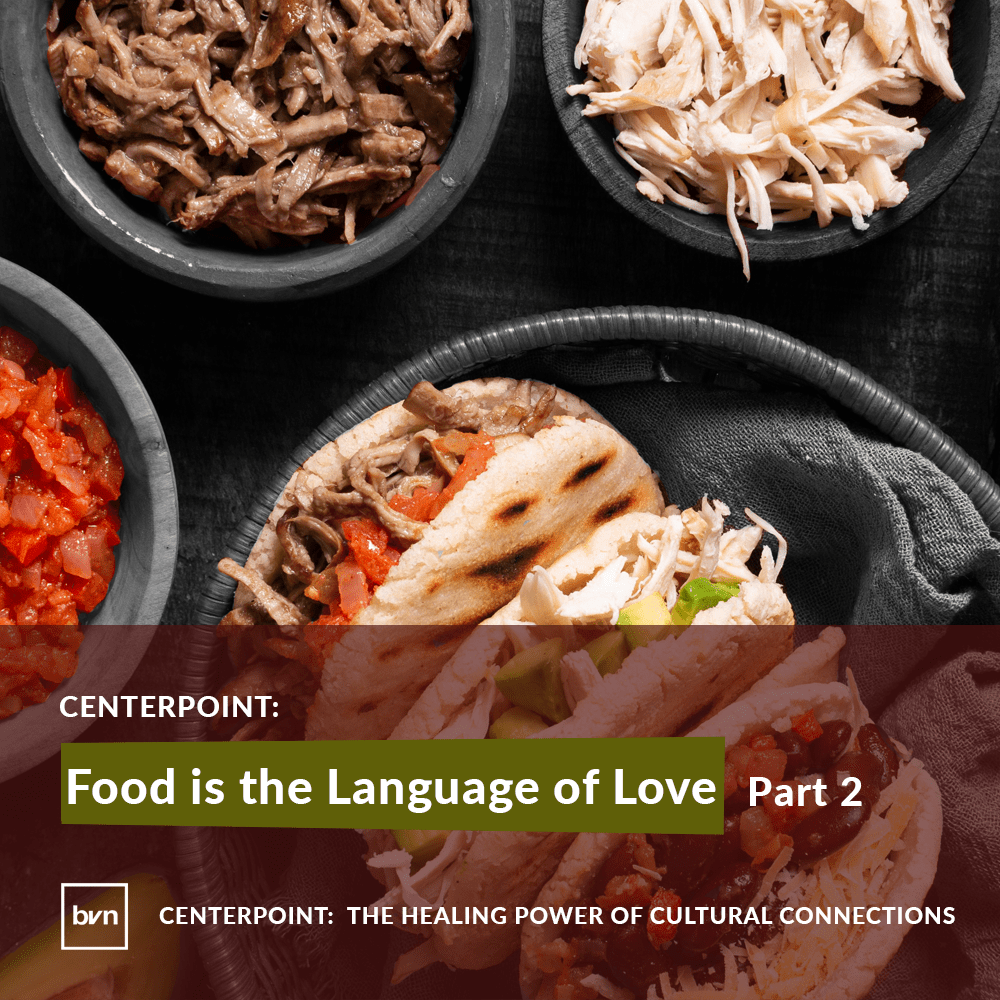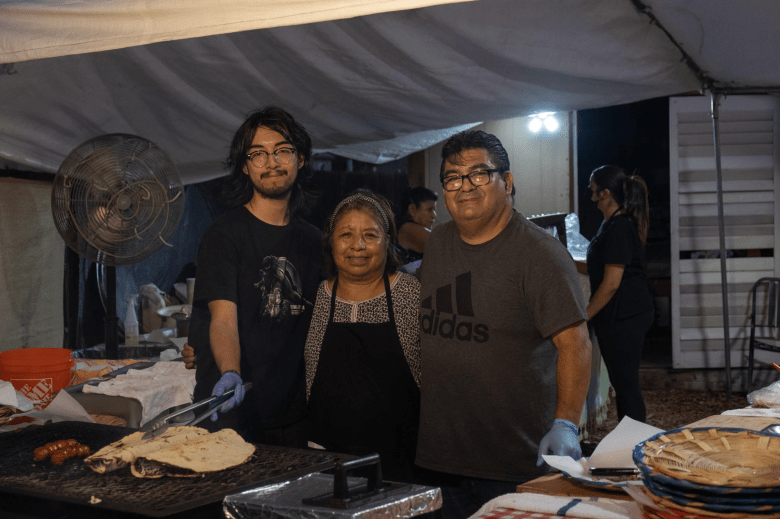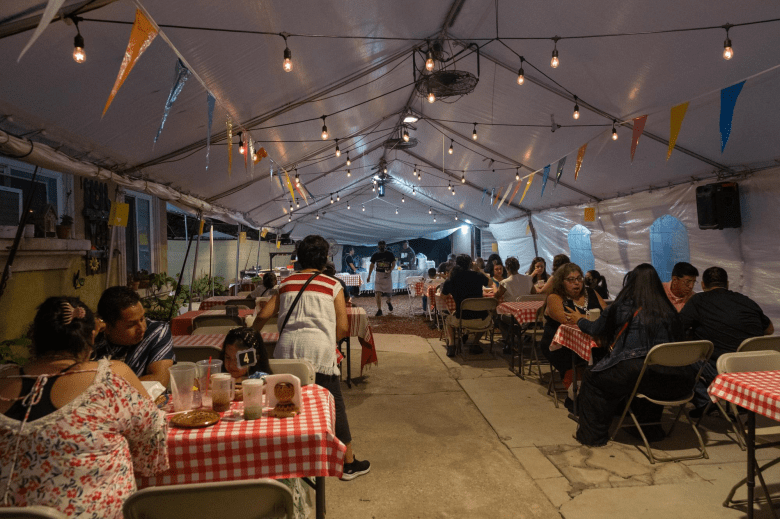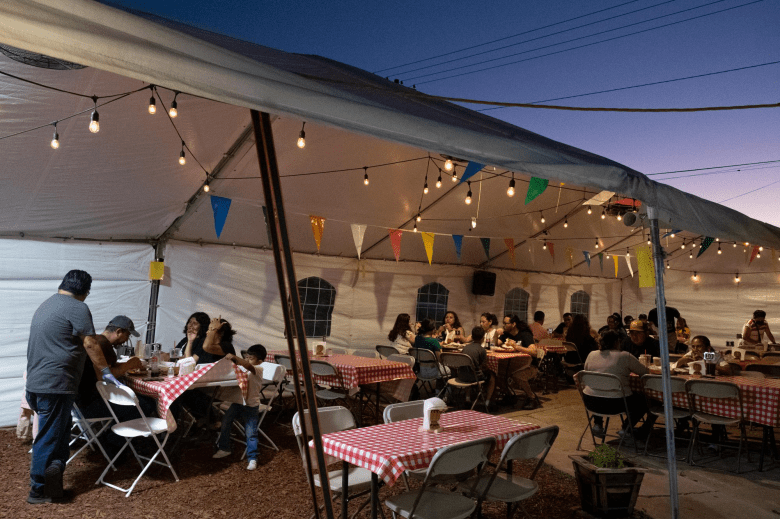Last Updated on December 4, 2023 by BVN
Luca Martinez
Nearly 22 years ago, Jose and his wife Antonia Toledo made a gamble.
The two natives from Oaxaca began serving food from their backyard, committed to sharing the authentic tastes of their homeland with the world. The gamble has since paid off for the couple.
Today, Jose and Antonia along with a handful of other family members spearhead Cenaduría Oaxaqueña Donají. Named after the legendary Zapoteca princess, the Riverside restaurant is a lively backyard gathering of Oaxacan food and culture each weekend.
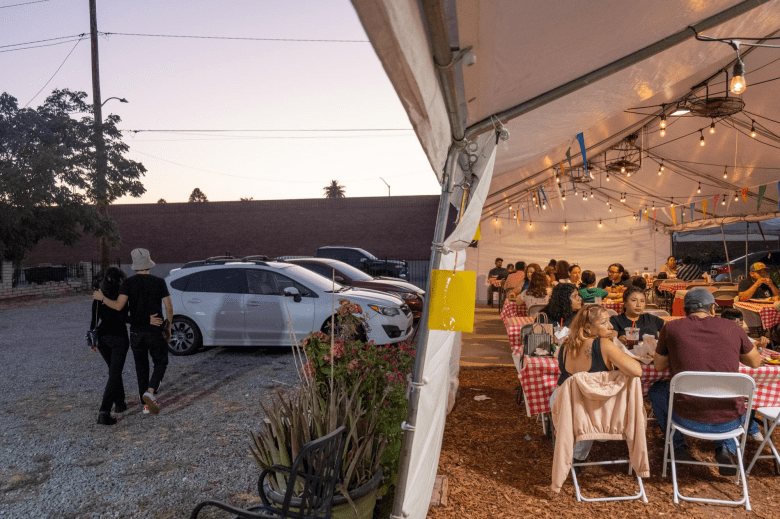
“This is what people prefer because it is the original flavor and they know what is not authentic and what is…People feel like they are at home,” Jose said.
The work hasn’t been easy. It requires Jose to work two jobs, head chef Antonia prepping the ingredients, a weekly drive to the Mexican border and a collective effort by the family.
Together, they created an environment unlike any other in Riverside. It’s a place that welcomes individuals from all walks of life, including those with no connection to Oaxaca. The family estimates about 50% of their customers are not from their native land.
The clientele
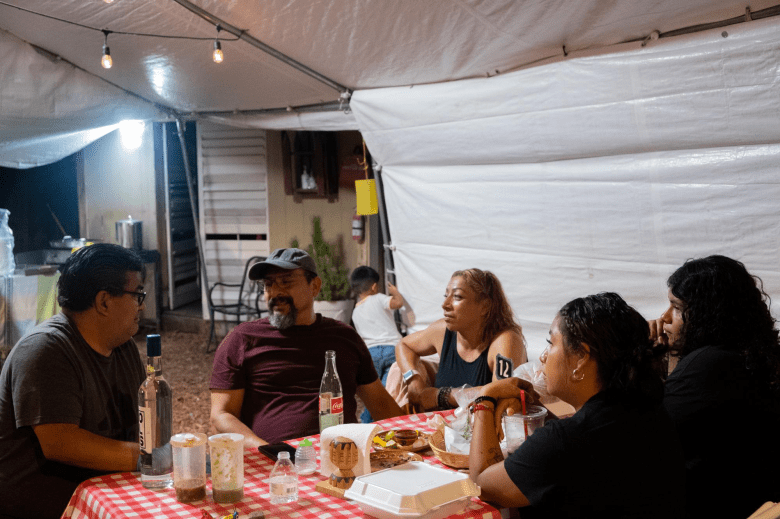
“We get a whole spectrum of people,” said Johnny Toledo, the 23-year-old son of Jose and Antonia.
The variety in clientele brings a smile to the face of Jose, who recalls walking the streets of his hometown of Tlalixtac de Cabrera and passing by cenadurías in the late afternoon. He and his wife immigrated to the United States in 1989.
“Cenaduria” roughly translates to eating house, a place to get a home-cooked meal. In the Toledos’ hometown, these locations typically open up in the late afternoon and serve traditional foods to those strolling by.
And that is exactly what Jose is trying to replicate in his own Riverside backyard with white tents and decorations.
The family serves quesadillas, tamales of mole, molotes (filled masa-based pastries), memelitas (thin masa cakes that have been grilled and then topped with ingredients), traditional bread from Oaxaca and chapulines or grasshoppers.
But, the restaurant is most well-known for its tlayudas, an iconic Oaxaca street food consisting of a large tortilla filled with black beans, quesillo (Oaxacan cheese), shredded cabbage and the asientos, or fat left over after cooking carnitas.
In 2020, the dish was voted the best street food in Latin America.
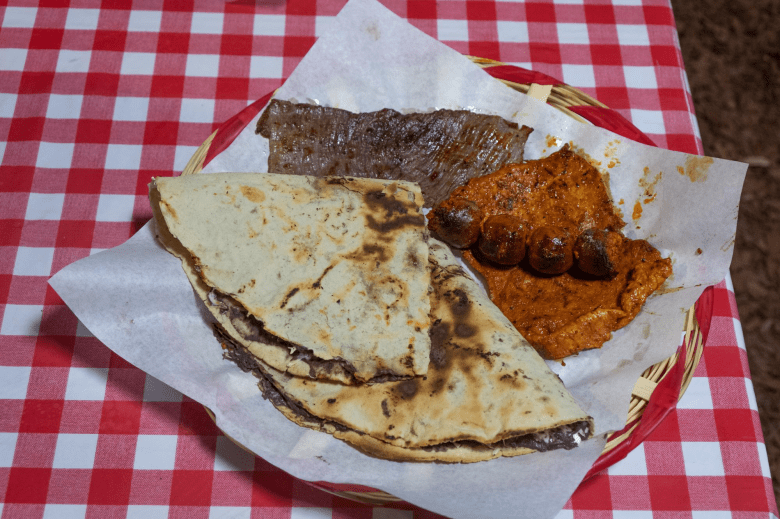
Childhood memories
Jose laughs when trying to recall the first time he ate a tlayuda. He says everyone in his family — from his parents and grandparents — ate the food growing up whether at home or on the streets of their town. They would often tear the tortilla of a tlayuda into pieces and dip it in a cup of coffee.
“It is the first food you will find in Oaxaca and that’s what we ate at home as a kid,” said Jose, who also works as an Aviation mechanic from Monday to Friday.
Johnny can pinpoint his first experience with the food to when he visited Oaxaca at nine-years-old. Nowadays, he enjoys eating tlayudas at his family’s backyard restaurant to get back that original feeling.
Johnny has not returned to his family’s homeland in nearly 13 years. But for him, the restaurant is a continual way to stay connected with the culture.
“I have a unique background with my culture in Mexico and here you can taste the culture, so for me, when I have a tlayuda here, it just still reminds me of when I was kid,” he said.
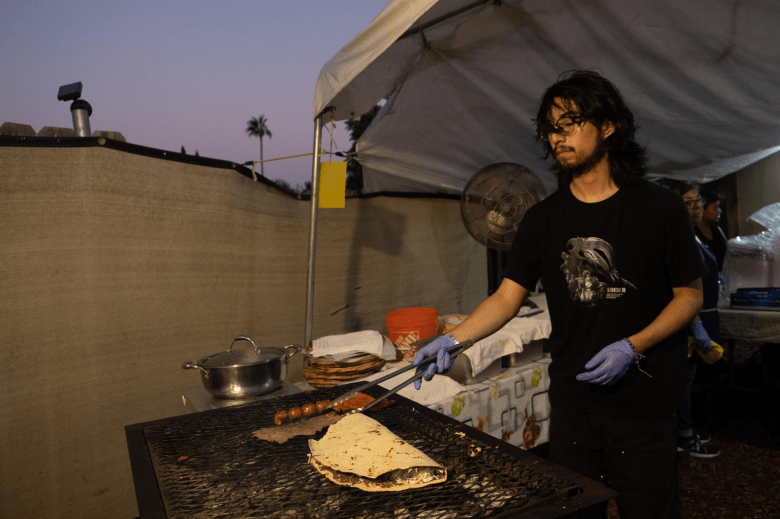
Authenticity and fresh ingredients from Oaxaca
To showcase the authentic flavors of their homeland, the Toledo family drives more than two hours nearly every Friday. The drive leads them to Tijuana where they pick up their weekly order of fresh ingredients flown in from the Mexican state of Oaxaca. They also arrange to buy traditional shirts and dresses to sell.
“What we sell is original and fresh,” said Jose, while beaming with pride.
He cites many restaurants in Southern California selling Oaxacan food while breaking away from tradition. For example, Oaxacan cheese does not exist, Jose firmly says.
“It is called Quesillo,” he adds.
As for the tlayudas, other locations will serve them with tomato and avocado or use a tostada instead of folding the tortilla. But at Cenaduría Oaxaqueña Donají, the family ensures that each dish is authentic with the flavor. The tlayudas are cooked over a charcoal grill, carefully folded, filled with the proper ingredients and served alongside the person’s choice of meat.
That originality is why Jose believes that the family’s business has grown and people keep returning to eat their food. Nowadays, they can expect a line of people during the three hours they are open on Friday and Saturday nights.
Despite the restaurant’s increase in popularity, Jose said the family does not plan to move into a restaurant any time soon. For starters, they could not continue to cook on a charcoal grill.
And for Jose, a proud Oaxacan man who lives for the weekends cooking alongside his family, their makeshift restaurant means much more.
“In a restaurant, the originality would be lost,” Jose said. “And for us as Oaxacans, we want to keep the originality. We are very cautious with our tradition…It is one of our priorities that the people from other states and countries know our food and originality. That they recognize the food of Oaxaca.”
Cenaduría Oaxaqueña Donají is open on Friday and Saturday nights from 6 p.m. to 9 p.m. and located at 1608 E. La Cadena Drive in Riverside.
This project was supported in whole or in part by funding provided by the State of California, administered by the California State Library.
Food is the Language of Love
Part 1: Everything Resolves Around Food
Part 2: A Restaurant Unlike Any Other
Part 3: The Taste of “Little Thumb”
Part 4: Spreading Nicaraguan Culture through a Dream Come True



